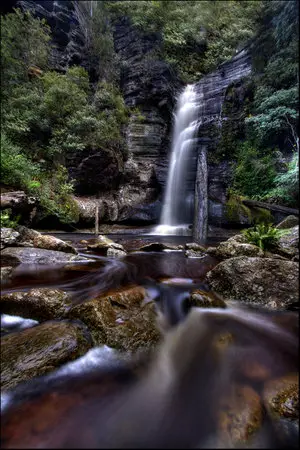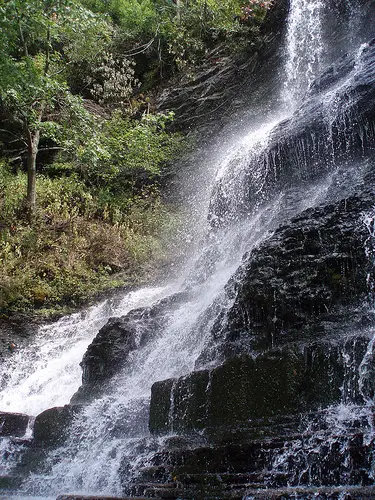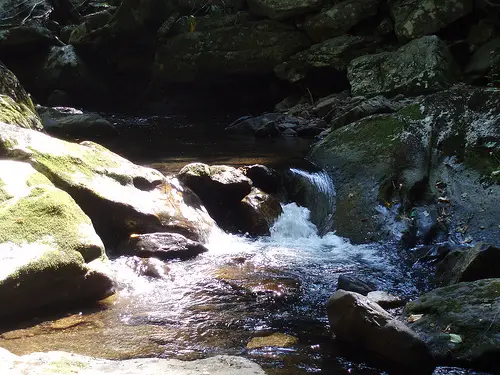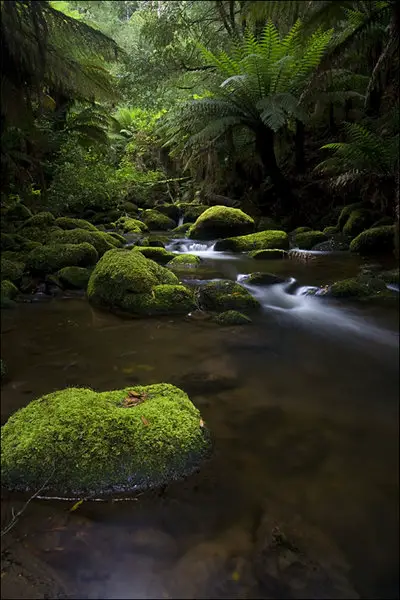
Hold up a second – I’ve recently written a guide that explains waterfall photography in more greater detail. It explores the equipment needed for waterfall photography, visual examples comparing how shutter speed can affect the photograph, best weather for waterfall photography and other tips. You can view this other waterfall photography guide here.
I continually come across photographs of waterfalls and they seem to lack something. I wonder if the owner just doesn’t understand what their camera is capable of or they just don’t care. But anyway I wanted to note what natural resources I rely on (such as weather) but also the technical aspects such as shutter speeds. I just find it amazing that people come across waterfalls with such potential and if they just took their time for a extra minute then I think the shot would be of much higher standard. Anyhow here are a few beginners photography tips which might help.
When shooting landscape photography, not only does the location play a important factor but the weather and time of the scene must also be taken into account. For waterfall photography, I find the weather to be a very important factor, this comes as it can ensure that the exposure is good which contributes to the final shot.
My favourite weather for shooting waterfalls is a overcast sky with patchy showers. The reason behind this comes as a result of the highlights which a clear sunny day may create when shooting. As you will be aware, most waterfalls have many surrounding trees which with a sunny sky can contribute to highlight around the scene. This in turn means that when attempting to take your shot, the end result will have patchy bright areas around the scene which aren’t exactly appealing. Also, when the weather is sunny and there is more light available this means that it’s difficult to use slower exposures to create movement in the water. So if you have the option and can be selective with when you are planning to shoot a popular waterfall, hold back for a overcast day. Here are a couple of examples of what I’m getting at and you can decide yourself which looks better..
Another important part of shooting a waterfall is the exposure time. When shooting waterscapes at the beach I’m careful not to sometimes shoot exposures that are above 3-5 seconds. This is because an exposure of 20 seconds creates a completely different image which a 3″ second exposure may create. For waterfalls this isn’t as much the case and the only thing which puts me off a long exposure is that trees may move during the exposure and create a blur. This is usually fine if they aren’t even at the viewers attention but are something just to take into account because although the long exposure is good for the water to create an effect, you must carefully manage your other areas of the scene. I increasingly come across people who take pictures of waterfalls and just use a high shutter speed. This is fine and that’s your decision but I find adjusting the shutter so it’s relatively slow (say 0.3″ seconds) can make quite the difference. Obviously this requires a tripod but is well worth the extra weight you may have to carry in.


So just in a nutshell for anyone starting out doing long exposures, set the camera into a shutter priority mode and set the speed to around 0.3″+ seconds and slowly play with it until you end up with a image your happy with. Initially you might be faced with an over exposed (bright image) which may mean you will have to fasten the shutter up a bit. If you just can’t get the shutter slow enough to create a blur in the water then I recommend neutral density filters.
In terms of composite of waterfalls, that’s something which you can’t really teach someone as we all have our own way of taking a photograph. Personally I like to frame the shot so there is something in the foreground such as rocks and then have the waterfall in the background. This is good as it not only creates a bit more interest to the viewer but also forms a different perspective to the average post card image.
Hope that helps with your future endeavours. I’m by no means a expert at photography but these things are so simple, abide by them and you will be rewarded.


